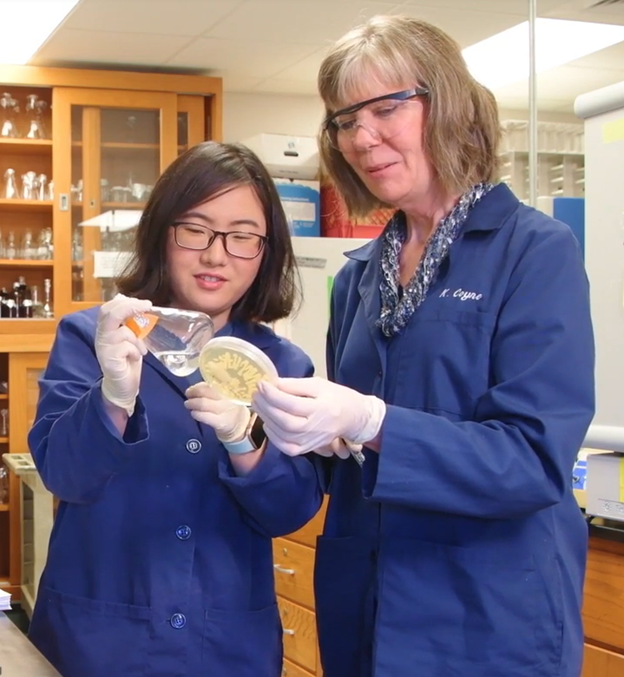Building on previous research that showed the bacteria Shewanella sp. IRI-160 produces an algicide targeting dinoflagellates with no effect on other phytoplankton, the project team will determine the concentration of Shewanella sp. IRI-160 required for 95 percent mortality in dinoflagellates.
Why We Care
Blooms of toxic dinoflagellates cause a variety of environmental, economic, and human health problems in the United States. The growing frequency and magnitude of outbreaks has created a pressing need for ways to control or mitigate harmful algal bloom (HAB) impacts in coastal waters. Biological control agents like viruses or bacteria may play a natural role in controlling blooms.
Research is needed to understand this phenomenon and find specific compounds that can be adapted to HAB control mechanisms, without harming the environment. This project advances the development of a promising control agent from the bacterium Shewanella sp. IRI-160.

What Are We Doing
Previous PCMHAB-supported research by the project investigators demonstrated that Shewanella sp. IRI-160 produces an algicidal compound, termed “IRI-160AA” that specifically targets dinoflagellates ,while having no effect on a broad range of other phytoplankton. Results of small-scale microcosm experiments during blooms of harmful dinoflagellates were consistent with laboratory culture experiments, and demonstrated a shift in community structure after application of the algicide, with a decrease in dinoflagellates and dose-dependent increases in ciliates and diatoms.
This project builds on these previous results, with an aim to provide management and end-users information about the effectiveness of IRI-160AA in prevention and mitigation of harmful dinoflagellate blooms and the potential risks to other species by application of the algicide.
The previous research was conducted with a bacteria-free filtrate of the culture medium. Quantitative assessment of the impacts of IRI-160AA across a broad range of taxa for this study require that the algicide be further purified. In preliminary work, analytical chemical analysis revealed the presence of four major peaks in the bioactive (lethal) chemical fraction of the algicide. Each of these bioactive peaks will be isolated to identify and characterize the bioactive compound.
The minimum (EC5) and median (EC50) effective concentrations as well as the concentration required to cause 95 percent mortality (EC95) in dinoflagellates will be determined using protocols and guidelines developed by the EPA. These concentrations will then be used to assess dose response in natural community experiments conducted under bloom and non-bloom conditions. Effects on a broad range of ecologically-relevant species will then be determined (e.g., copepods and blue crab larval stages).
Our overall goal is to gain more information for management and end-users about the impacts of the algicide on dinoflagellates and non-dinoflagellate species so they can accurately predict the overall effects on resident populations during field applications.
A Transition Advisory Committee will provide advice on project design and ensure timely transfer of information to resource managers.
This project, part of the NCCOS PCMHAB Program, is led by Dr. Kathryn J. Coyne of the University of Delaware College of Earth, Ocean, and Environment in partnership with University of Delaware co-investigators Drs. Mark E. Warner, Jonathan H. Cohen and Timothy Targett.
